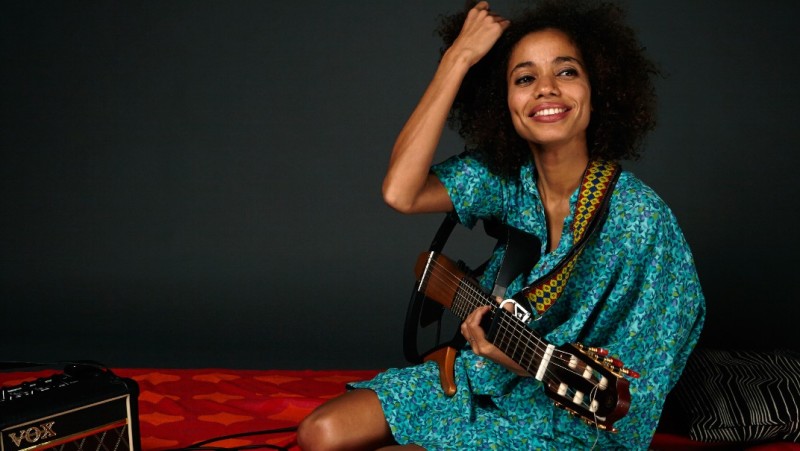Two things to know about Nigerian singer-songwriter Nneka: she possesses a big heart and a soulful voice. Her latest project and first independent release, My Fairy Tales, is a distinctly personal project that reflects Nneka’s empathy and her role as a bridge between West Africans and the diaspora. She shares her musical experience at a two-night stand in Oakland this week.
My Fairy Tales reflects the loneliness and isolation of African immigrants as they adapt to a new society, experiencing racism and prejudice along the way. Despite all this, Nneka tells KQED, the album tells the story of how “we endure, how we persevere, and stay in the midst of all this and still have hope for a better life.”
As a child in Warri, Nigeria — a city located on the Niger Delta — music offered a way for Nneka Lucia Egbuna to be at peace. Even when she sang to herself, it indulged her wishes for a more comfortable, more peaceful life, where she could “have three square meals, and not have to hustle or fight for it,” she says. Having grown up with a traditional education in Nigerian music, in addition to being surrounded by the music and festivals of the Delta region, Nneka listened to the music of King Sunny Ade, Chrissy Essien Igbokwe, and Victor Uwaifor — but also enjoyed the “western” power ballads of Bryan Adams, Dolly Parton, Rod Stewart, and Boyz II Men on the radio.
When she was 19, Nneka left Nigeria for Germany (she’s half German, on her mother’s side). After getting her music career off the ground in Hamburg, and living in Europe for a while, she returned back to Nigeria. She’s lived in Lagos for the last seven years.
The album, released on Nneka’s independent label, Bushqueen Music, strays from her hip hop-soul-acoustic sound (she’s worked with Damian Marley, the Roots and Nas in the past) in favor of afrobeat and reggae rhythms, the combined influence of Fela Kuti and Bob Marley. “They are my role models to a certain extent,” she says.


